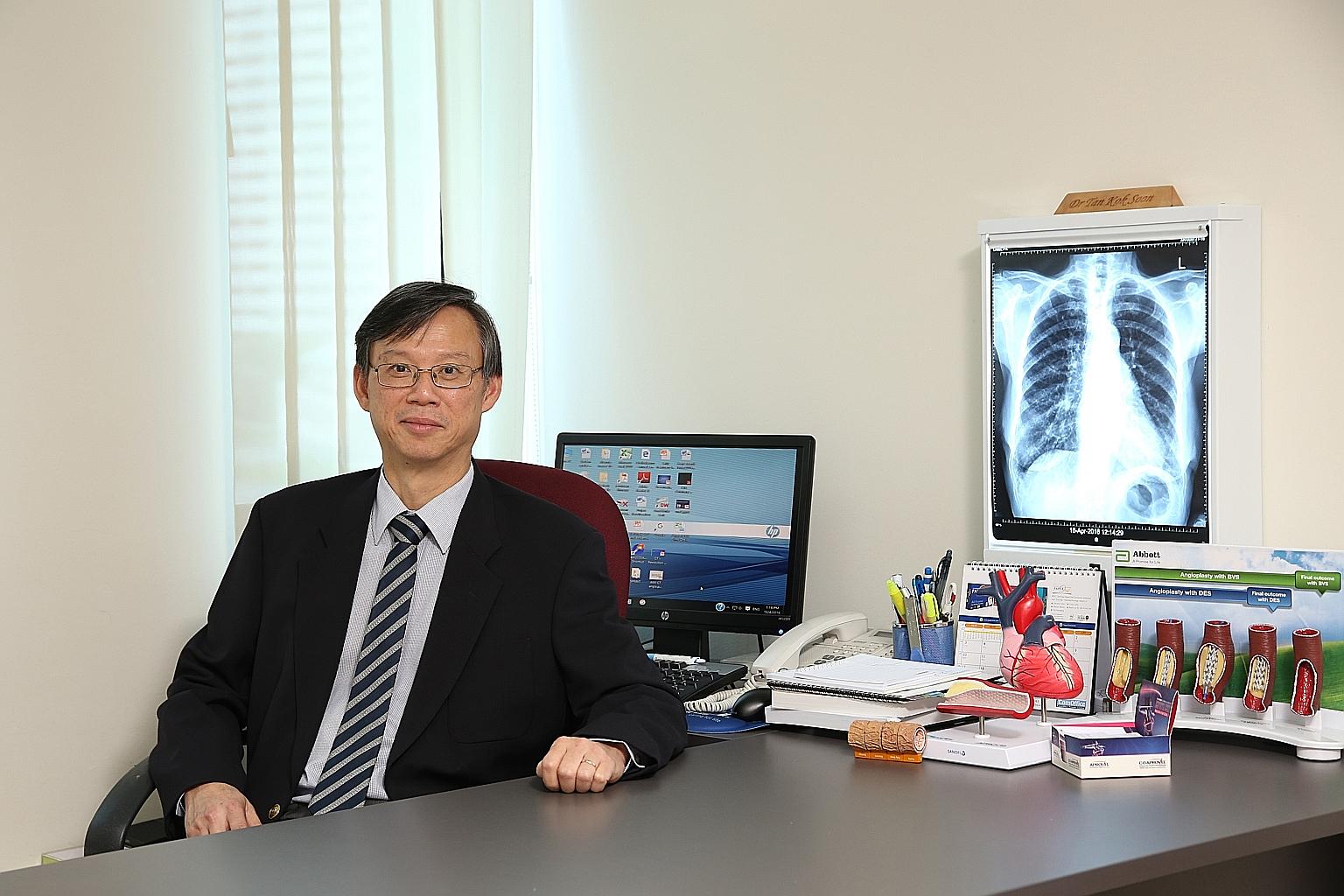Slouching causes sharp pain in chest
Sign up now: Get ST's newsletters delivered to your inbox

Q I am a 25-year-old man. After sitting in a slouching position for long periods, I get a sharp throbbing pain in my left chest area.
It happens intermittently and disrupts my work, distracting me for about 15 minutes each time.
I exercise regularly, but my family has a history of heart attacks. Is this something that I should be worried about?
A The chest pain you have is probably a result of the way you sit, especially for prolonged periods of time, rather than a serious heart condition.
Your symptoms do not fit into any of the serious cardiovascular conditions that has chest pain as a symptom.
It is fair for you to wonder if it is possible that the chest pain is a warning sign of an imminent heart attack, especially as you have a family history of heart disease.
However, the pain that a heart attack engenders is typically severe - it is a tight, squeezing or constricting sensation.
It is felt in the centre of the chest, radiating to the neck or arm with sweating, nausea, vomiting, dizziness and breathlessness. It will persist for at least 15 to 20 minutes and may last for hours.
Most patients who have suffered a heart attack will have had angina pectoris for many years prior.
Angina pectoris is a medical term for chest pain or discomfort due to coronary heart disease. It occurs when the heart muscle doesn't get as much blood as it needs.
It is a milder and more stable form of the same underlying condition and can also present as chest pain.
The pain of angina pectoris is similar to that of a heart attack but it is of a shorter duration, lasting only a few minutes.
Typically, the pain is brought on by exertion and relieved by rest and not associated with other symptoms like sweating, nausea or vomiting.
The character of the pain you described is not like that of a heart attack or of angina pectoris.
More importantly, although you are at a higher risk of having a heart attack later in life due to your family history, the risk of having these conditions at your age is extremely low.
There are other rare heart or circulatory conditions, such as inflammation of the heart, inherited heart muscles or valve diseases, disease of the aorta or clots in the vessels of the lungs that can cause chest pain.
However, the description of your chest pain does not fit into any of these serious conditions.
Nevertheless, if the chest pain is troubling you and is interfering with your work, you should have the cause of your chest pain investigated by a cardiologist and to ensure that you do not have any of the above serious heart conditions.
The heart evaluation usually includes:
•A clinical examination
•An electrocardiogram to look at the electrical pattern of your heart
•An echocardiogram to look at the structure and function of your heart
•An exercise treadmill test to check for any possibility of blockages of your heart arteries
•A computed tomography (CT) scan of your heart to confirm if there are any heart artery blockages with a high degree of accuracy.
Once a serious heart condition has been ruled out, other possible causes of your pain, relating to the neck, spine, lungs, chest wall or food pipe, can be looked into.
In the meantime, you can examine if your sitting posture, the way you slouch or the position of your neck and upper limbs during prolonged sitting periods are putting unnecessary strain on your upper torso or shoulders.
You can also try to get up and move around more frequently and not sit for too long at a time to see if these measures will relieve your symptoms.
Brought to you by

Dr Tan Kok Soon
Senior consultant cardiologist at Tan Kok Soon Heart Specialist Clinic at Mount Elizabeth and Mount Alvernia Medical Centres


